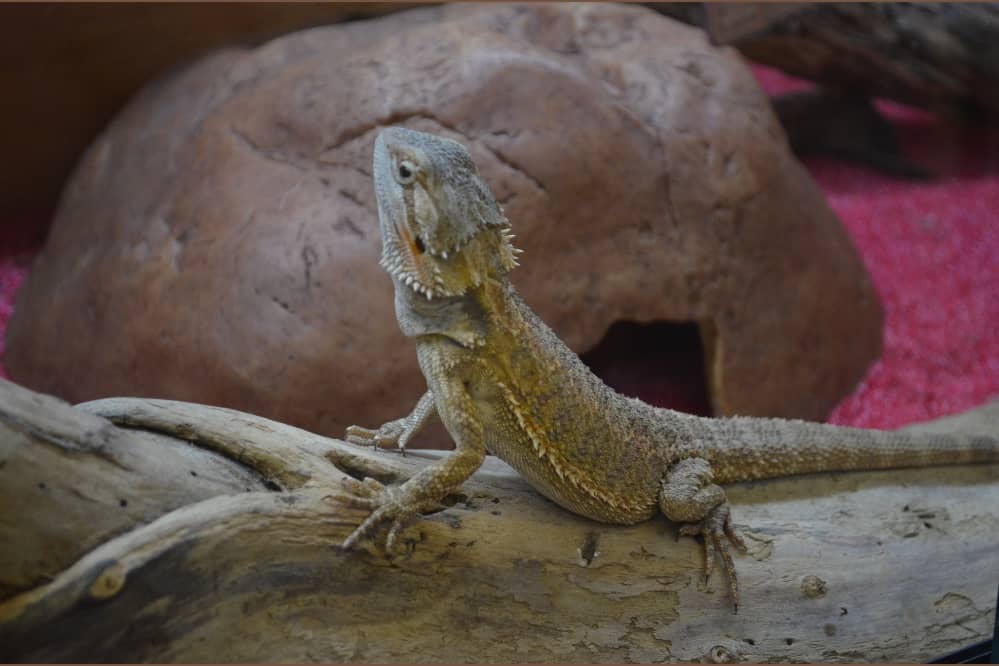Hiding occasionally or spending some time under a shade is natural and perfectly normal for a bearded dragon. Therefore, placing one or more hides inside is advised when preparing a vivarium for a beardie. Bearded dragons hide for a lot of reasons, some of which are normal, and you don’t need to be concerned. While other reasons may require an immediate response, especially when your beardie spends more than usual time hiding. Let’s see why bearded dragons constantly hide.
10 Reasons Why You are Constantly Hiding
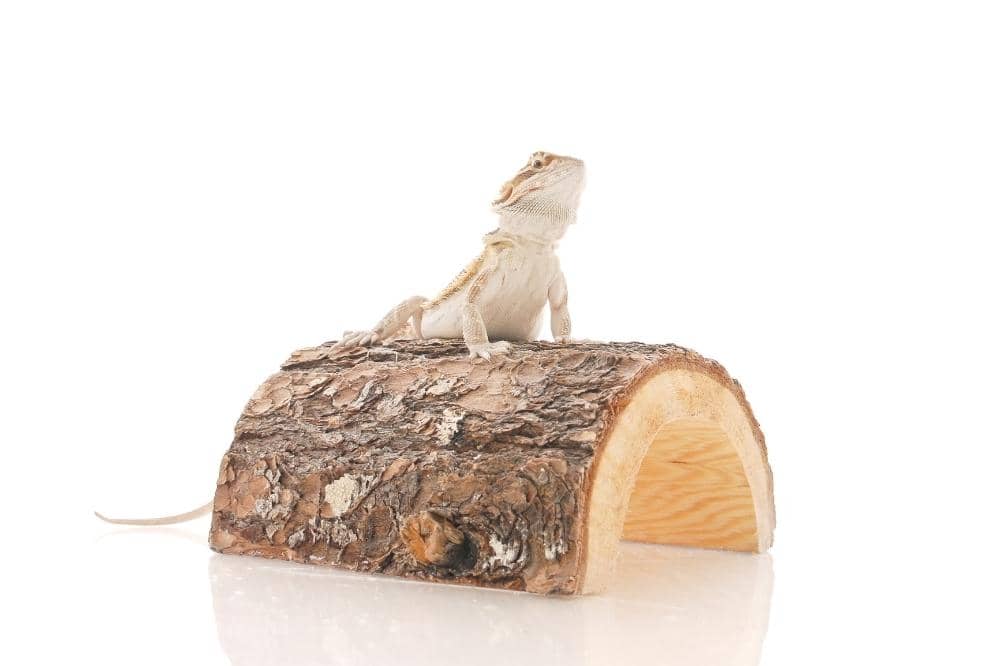
1. To Cool Down Their Bodies
Though bearded dragons like higher temperatures (around 100 0F) and spend most of their time basking, sometimes they also need to cool down their bodies when they feel overheated. For the same reason, it is advised to maintain a temperature gradient inside the tank with a heat source (basking area) at one end and a comparatively cool spot (at 750F – 800F) at the other end. If the thermostat is set too high (or not works appropriately), the vivarium will become an oven with no cool spot, and our bearded friends have no choice but to hide in the cave to cool down their bodies.
So if your bearded dragon spends too much time hiding, the first thing to check is the temperature inside the vivarium and whether the temperature gradient is properly maintained.
Related article How Many Hours Of Heat Do Bearded Dragons Need?
2. Incorrect UVB Light Intensity & Placement
If UVB lights are too bright for a beardie’s eyes, it can make your bearded dragon hide more to protect its eyes from high intensity light. In addition, it is possible that UVB light’s intensity is correct, but lights are placed at a height too low than the recommendations. If you observe that your bearded friend continuously blinks his eyes when inside the vivarium and stops blinking when you take him out of his tank, it clearly indicates that there is an issue with the UVB light’s intensity or height. So make sure to use the right (good quality) UVB lights and install them at the correct height (not less than 6-8 inches) to prevent unnecessary hiding behavior.
3. Loud Noises
Bearded dragons naturally like quiet and peaceful surroundings, and any unfamiliar sound (especially if it is loud, too) can scare them. Loud sounds (like loud music, loud TV, Traffic horns, children playing loudly, etc.) can make your beardie feel afraid or stressed. And when beardies are not certain about something, their first natural response is to hide. Therefore it is recommended to place beardie’s tank in a quiet and calm place to avoid unnecessary sounds.
4. New Surroundings Or Home
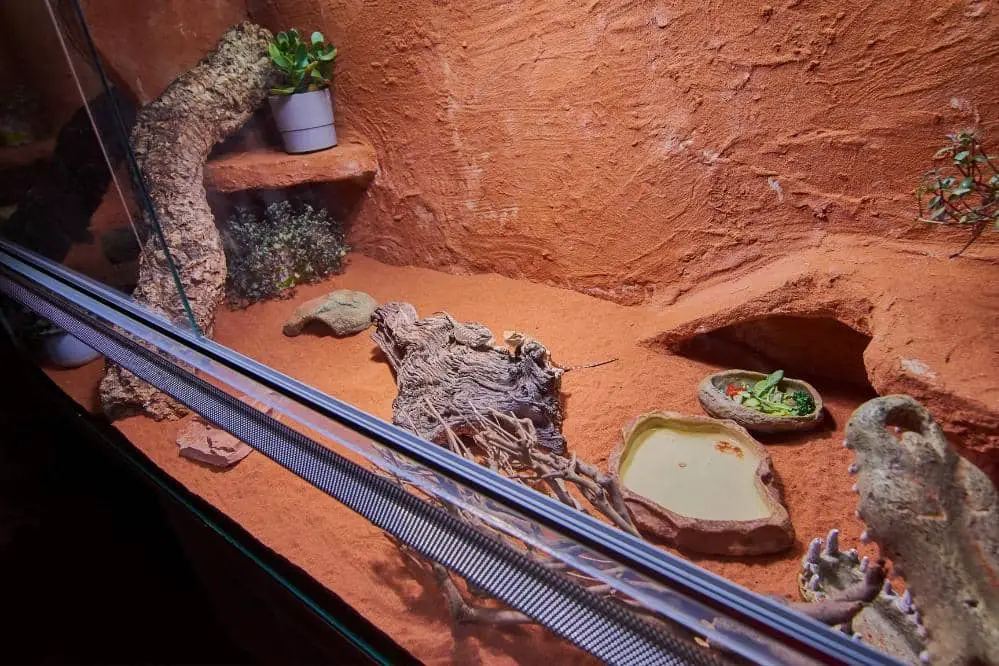
It’s natural for a bearded dragon to hide more than usual if you recently changed its vivarium, changed the vivarium’s location in the house, or recently adopted a new beardie. Because beardies feel scared in a new surrounding and generally take 7-10 days to get familiar with the new home. This behavior is more pronounced in baby beardies than in adults. So you should provide them with an environment that closely resembles their wild or natural habitat. They will feel more at ease in such an environment and get used to it quickly.
5. One Cage, Two Beardies
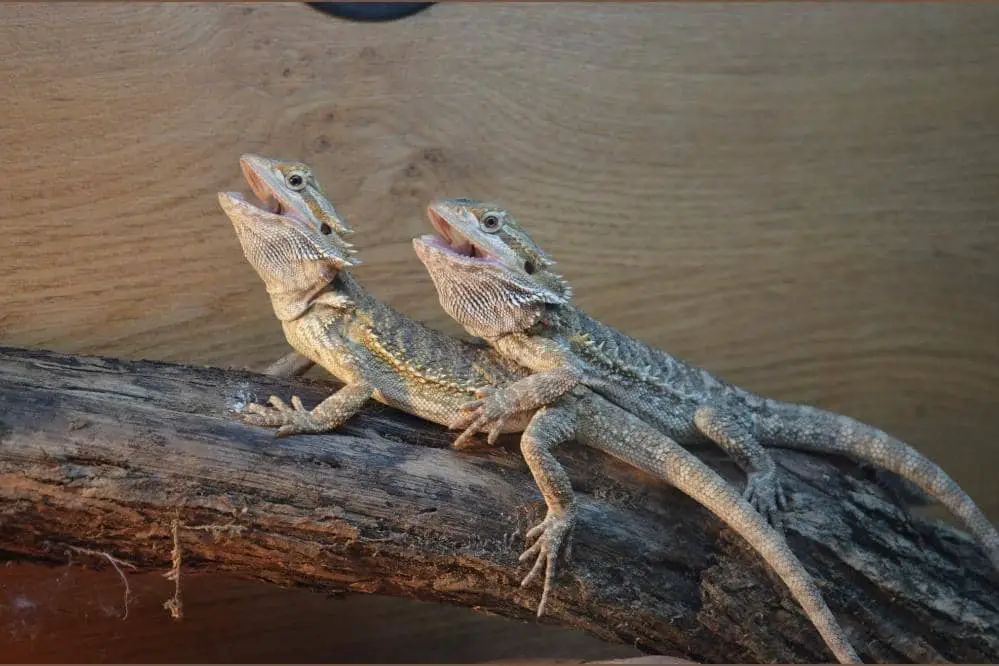
Instinctively, bearded dragons are solitary and territorial animals and don’t like to share their place even with other beardies. So if you put two or more beardies in a tank, they will fight to establish their dominance until it is decided who the boss is. The submissive one will be continuously stressed and afraid and prefer to hide most of the time to avoid clashing with the dominant one. So never try to keep more than one beardie in a tank.
6. Other Pets At Home
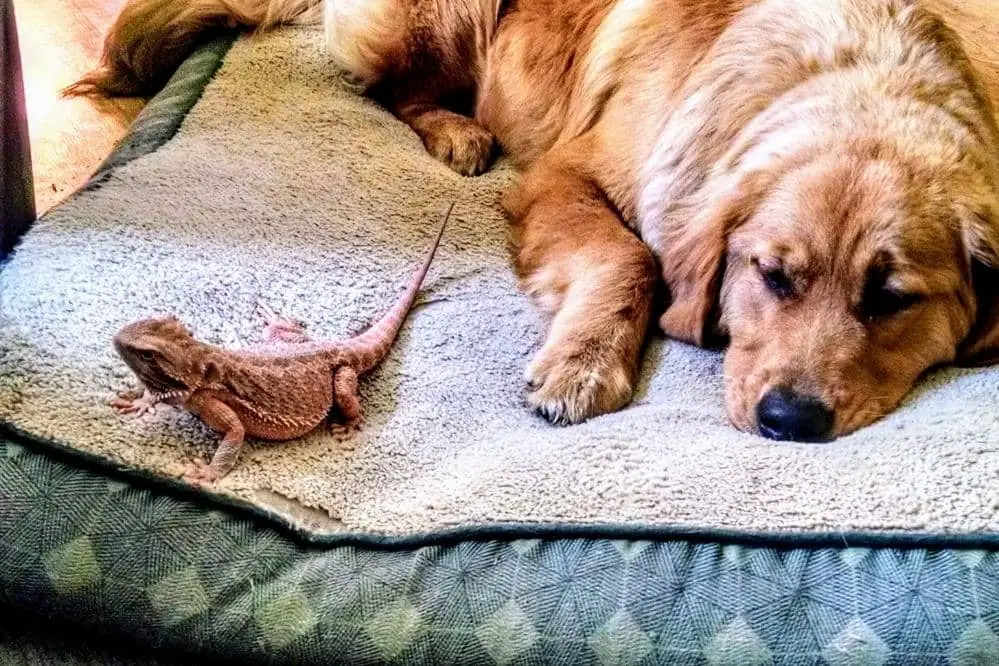
Since bearded dragons are prey for many large animals and birds in the wild, larger pets in the house (like dogs, cats, large birds, etc.) can make your bearded friend afraid. So, when your beardie sees them or even hears their voice, he will interpret it as a predator approaching him, and naturally, he will run to hide. So you should place your beardie’s tank in a place where he can’t see and hear other pets in the house.
7. Shedding
Contrary to other reptiles (like snakes, who shed their skin as one piece), beardies shed in patches, and the process is painful, disturbing, and takes more time. So while shedding, beardies usually are upset, angry, irritable, itchy, and sore and don’t like handling or having social interaction. So they spend most of their time hiding. In addition, in the wild, they don’t want predators to use their shed skin as a clue that a prey is here. This is perfectly normal, and you should not disturb your beardie while shedding. Though you can handle them when it’s very necessary, but be extra careful not to harm your beardie.
8. Brumation
Like shedding, brumation is another common but natural reason that makes the bearded dragon hide for a long duration. Brumation is just like hibernation, and beardies and other reptiles brumate during winter to avoid harsh weather. However, you should look for other signs, too, to differentiate whether your beardie is going to brumate or ill.
9. Impaction
Impaction is a medical condition (like constipation) that happens when a beardie eats something that he can’t digest or is too large to pass through the digestive tract leading to the blockage of the gut. Impaction is a painful condition (especially while moving), so bearded dragon prefers not to move and spends most of their time hiding. In such a case, the best strategy is to contact your vet.
10. Injury Or Sickness
If your bearded dragon is hiding longer than usual and you can’t find any of the above mentioned reasons, it is possible that your bearded friend may be suffering from some kind of disease or have an injury. Naturally, when you are injured, it’s painful to move, so you prefer to stay in one place, and when beardies decide to rest for a long time, they select their hide.
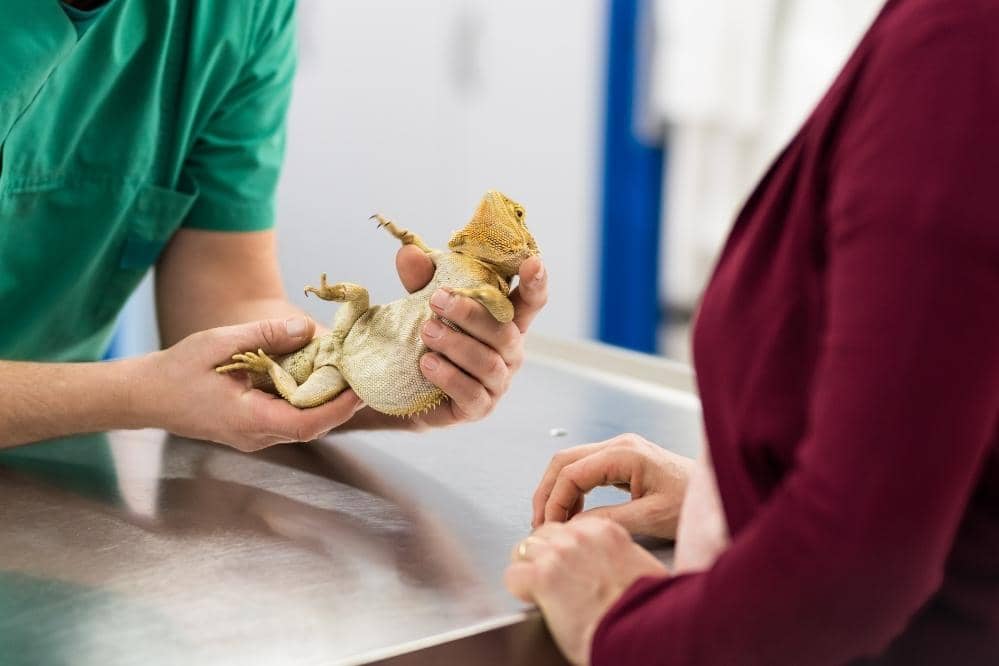
Similarly, a sick bearded dragon will move less and spend more time resting in his hide than usual. Though beardies are sturdy animals who rarely get sick, still it’s not out of the question. Some common signs of illness in beardies are breathing issues, weight loss, lethargy, lack of appetite, discharge (eyes, ears, nose, or mouth), diarrhea, skin changes, etc.

